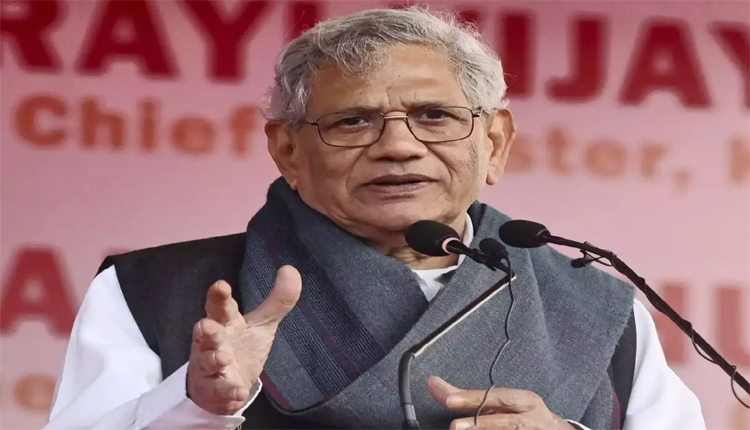New Delhi: Sitaram Yechury, a pivotal figure in Indian leftist politics for nearly 45 years, has passed away. Yechury, who served as the General Secretary of the Communist Party of India (Marxist), was a leading voice for Marxist ideology in the country. His political journey began at the age of 17 during the Telangana movement and gained national prominence during the Emergency.
Born in Chennai in 1952 and raised in Kakinada, Andhra Pradesh, Yechury’s early education was in Hyderabad. He became politically active as a student, joining the Telangana movement, which sought to create a separate state of Telangana from Andhra Pradesh. Although he distanced himself from the movement in 1970 after moving to Delhi, Telangana eventually achieved statehood in 2013 during the UPA government.
Yechury completed his graduation from St. Stephen’s College, University of Delhi, and went on to pursue higher studies at Jawaharlal Nehru University (JNU). He was elected the president of the JNU Students’ Union in 1977-78 and became a prominent student leader during the Emergency imposed by then-Prime Minister Indira Gandhi. Yechury organised the United Students Federation and led a march to Indira Gandhi’s residence in protest, demanding her resignation as Chancellor of JNU, a position she later relinquished. This activism resulted in his arrest during the Emergency.
In 1978, Yechury became the Joint Secretary of the Students’ Federation of India (SFI), the student wing of the Communist Party of India (Marxist). By 1984, he rose to lead the organisation, becoming its first chief who was neither from Bengal nor Kerala. Under his leadership, the SFI expanded beyond its traditional strongholds.
Rising Through the Ranks of the CPM
Yechury joined the CPM’s Politburo in 1992 and began to play a crucial role in national politics. By the 1990s, he was considered the party’s “poster boy,” frequently representing the CPM in media debates and public forums.
He was instrumental in forming a united opposition against the NDA government in 2004, working closely with then-CPM General Secretary Harkishan Singh Surjeet. This effort led to the victory of the United Progressive Alliance (UPA) at the centre, and Yechury played a key role in drafting the UPA’s Common Minimum Programme.
However, Yechury publicly opposed the CPM’s decision to withdraw support from the UPA government in 2008, calling it a dangerous move for the party. Despite his reservations, the Politburo’s decision prevailed.
Leadership and Challenges
Elected to the Rajya Sabha in 2005, Yechury became the General Secretary of the CPM in 2015. At that time, the party was in power in Tripura and held significant influence in Kerala and Bengal. The CPM later lost its stronghold in Bengal and Tripura, retaining power only in Kerala.
Yechury experimented with various strategies to revive the party, including forming alliances with the Congress and reconsidering its stance on caste and religious politics. However, these efforts did not yield significant success, and the party struggled to regain its former prominence outside Kerala. In the recent Lok Sabha elections, the CPM managed to win only four seats, securing just 1.76% of the national vote share.
Personal Life and Legacy
Yechury’s personal life was marked by tragedy with the death of his son, Ashish Yechury, due to COVID-19 in 2021. He is survived by his wife, Seema Chishti, a senior journalist, and their daughter, Akhila Yechury. His first marriage to CPM activist Indrani Mazumdar ended in divorce.
Yechury’s life and career were defined by his commitment to Marxist principles and his efforts to build a strong opposition against right-wing politics in India. His death marks the end of an era for the Left in India, leaving behind a legacy of activism, leadership, and relentless pursuit of social justice.



Comments are closed.